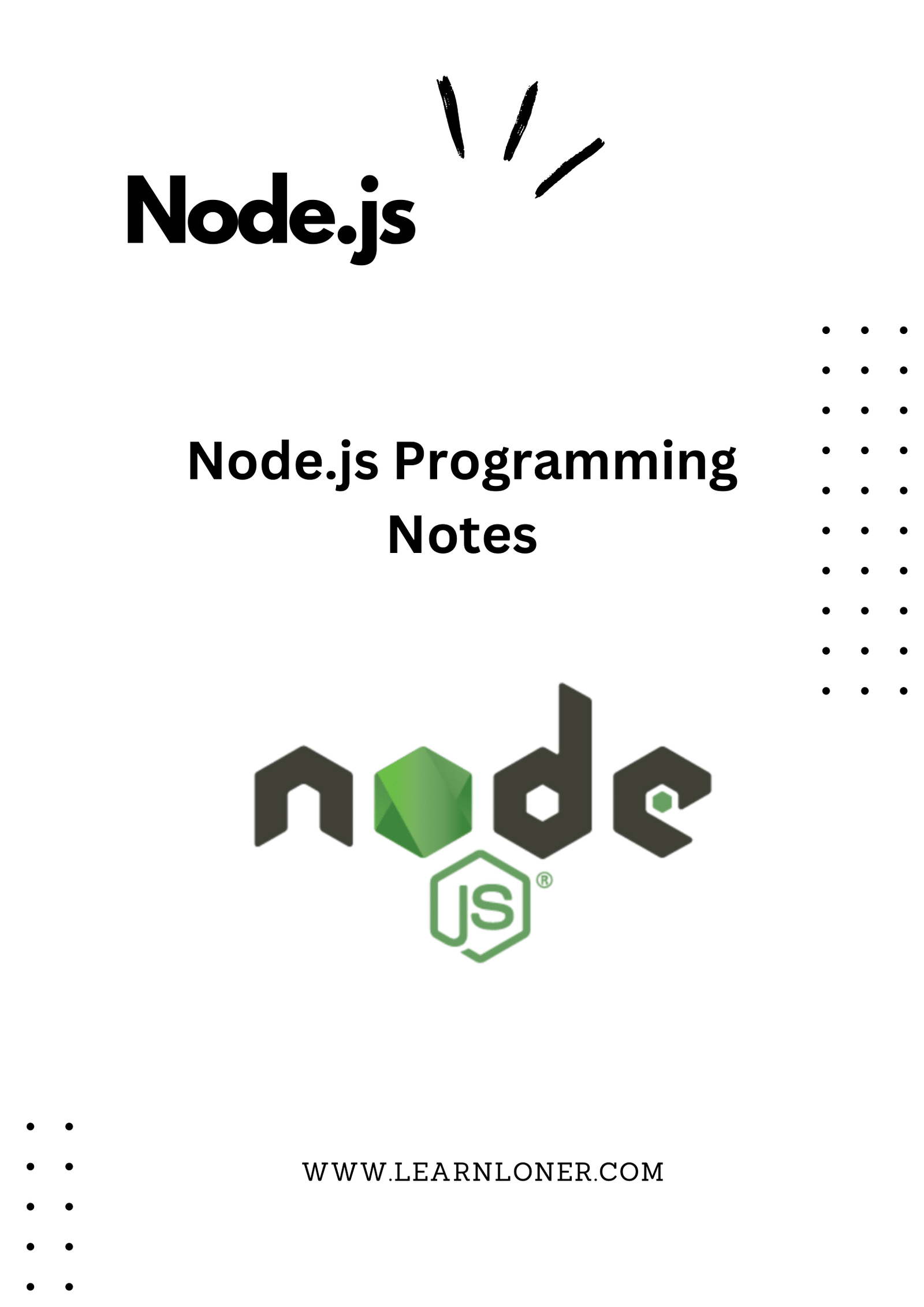Node JS Notes PDF Download – Learn Loner
Dive into the world of server-side JavaScript with Learn Loner’s Node.js Notes PDF! Explore the powerful capabilities of Node.js, a runtime environment that enables server-side scripting. Whether you’re a coding enthusiast venturing into backend development or a seasoned developer refining your skills, our comprehensive guide accommodates all levels of expertise. Click now to download your free PDF and delve into the essence of Node.js, empowering you to build scalable and high-performance applications with ease.
Node.JS Notes - Overview
Welcome to Learn Loner, your ultimate destination for mastering Node.js with our dedicated resource – the Node.js Notes PDF. Immerse yourself in the dynamic world of server-side JavaScript development through our meticulously crafted and downloadable notes. Whether you're a coding enthusiast venturing into Node.js for the first time or an experienced developer looking to deepen your skills, our resource caters to learners of all levels. Explore fundamental Node.js concepts, asynchronous programming, and best practices presented in a structured and easy-to-follow format. At Learn Loner, we are committed to empowering individuals to harness the full potential of Node.js, and our Node.js Notes PDF is designed to be your comprehensive companion in this educational journey. Download, explore, and elevate your Node.js proficiency with Learn Loner.
More Related Notes
Node.JS – Overview
Embark on a journey into the world of dynamic programming with Node.js, a powerful runtime environment for building scalable and efficient server-side applications. In this comprehensive overview, we’ll explore the fundamentals of dynamic programming, discuss its relevance in the context of Node.js, and provide insights into how Node.js features enhance the efficiency and performance of your backend applications.
Asynchronous Nature of Node.js:
Node.js is built on an event-driven, non-blocking I/O model, making it highly suitable for handling concurrent operations and asynchronous tasks. Dynamic programming principles can be applied to optimize complex, asynchronous workflows, ensuring efficient resource utilization and responsive backend services.
Efficient Data Handling with Streams:
Node.js Streams facilitate efficient handling of data, enabling dynamic programming techniques for processing and transforming large datasets. Whether reading from a file, handling HTTP requests, or interacting with databases, leveraging streams enhances the performance and responsiveness of Node.js applications.
Dynamic Routing and Middleware:
Express.js, a popular web application framework for Node.js, allows developers to implement dynamic routing and middleware for efficient request handling. Applying dynamic programming concepts to route management and middleware execution enhances the flexibility and scalability of Node.js applications.
Caching and Memoization for Performance:
Node.js applications often benefit from caching strategies and memoization techniques to improve response times. By applying dynamic programming principles to cache frequently used data or memoize function calls, developers can significantly enhance the performance of backend services.
Scalability with Cluster Module and Load Balancing:
Node.js provides a Cluster module for utilizing multiple CPU cores and achieving horizontal scalability. Coupled with load balancing techniques, dynamic programming can be employed to distribute tasks efficiently across workers, ensuring optimal resource utilization and responsiveness in scalable Node.js applications.




